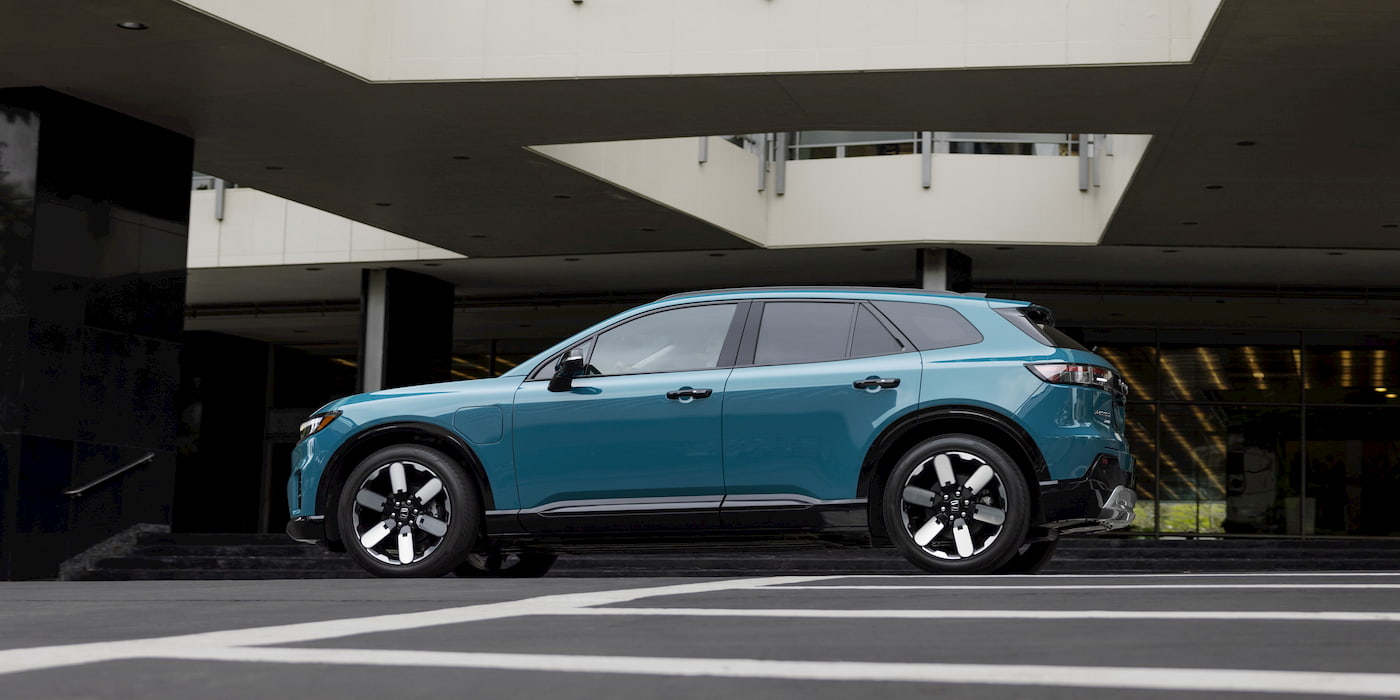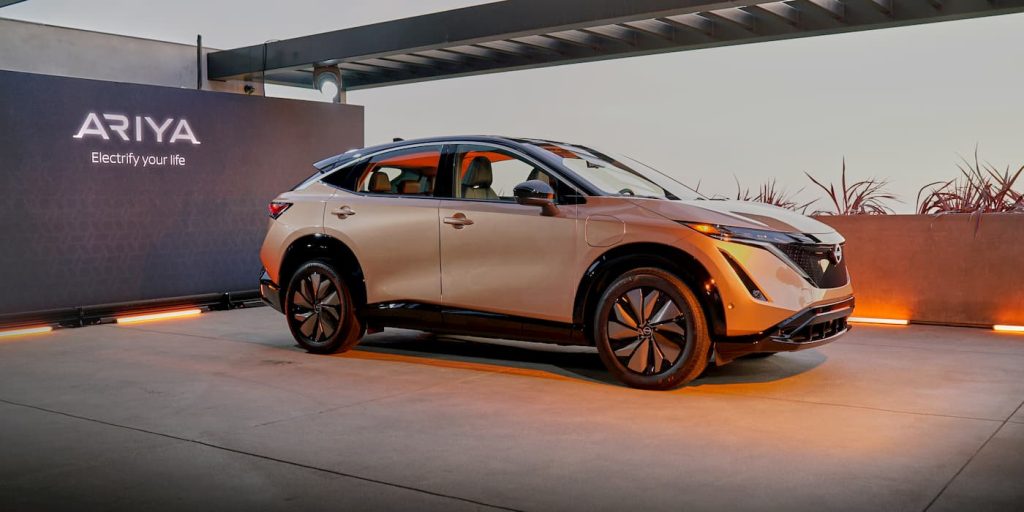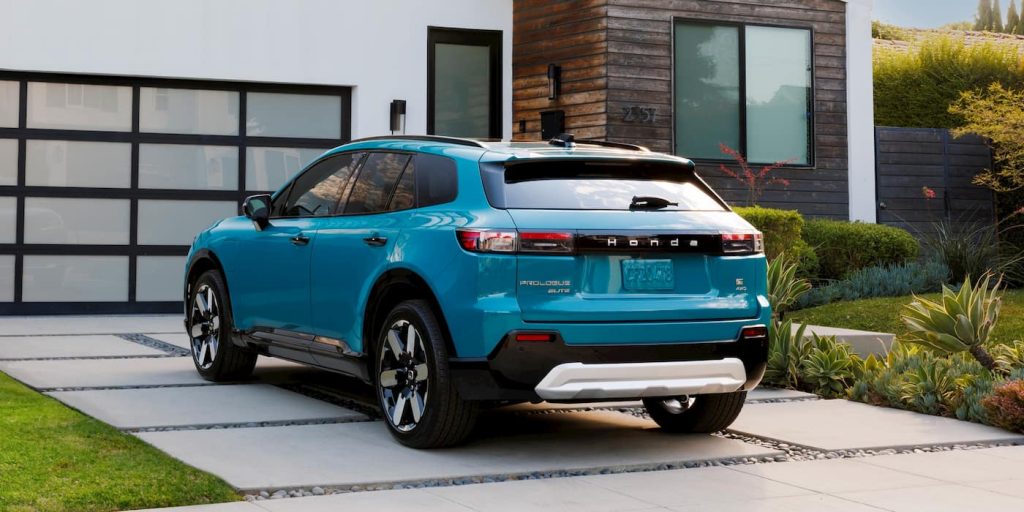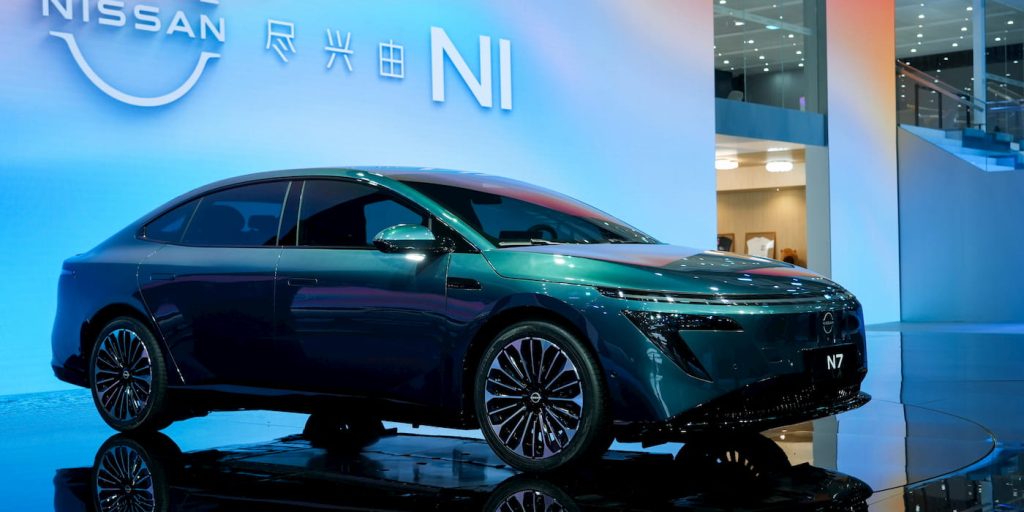
Honda and Nissan will team up to build EVs as they look to keep pace with Tesla and BYD. The Honda and Nissan EV merger will create one of the world’s largest auto groups as they look to pull a third Japanese automaker into the partnership. Here’s everything you need to know.
How the Honda and Nissan EV merger will work
It’s official. Honda and Nissan signed a memorandum of understanding (MOU) on Monday, laying the groundwork for a joint EV holding company. Executives from both companies confirmed the news.
We knew the EV merger was coming soon after a Nikkei report last week claimed Honda and Nissan were closing in on a deal. With around 8 million combined sales, the landmark partnership will create the third-largest auto group globally, behind Volkswagen and Toyota.
In August, Honda and Nissan extended the collaboration to include Mitsubishi. Nissan, which owns a 24% stake in Mitsubishi, said including its partner is “significant” and will enable them to deliver even greater value.
Honda’s CEO, Toshihiro Mibe, explained, “At this time of change in the automobile industry, which is said to occur once every 100 years, we hope that Mitsubishi Motors”’ participation in the business integration discussions of Nissan and Honda will lead to further social change.”

A rapidly changing auto industry
After kicking off discussions on Monday, Honda and Nissan said they plan to provide more details on Mitsubishi’s involvement around the end of January 2025. The EV merger is expected to be official by August 2026.

The deal comes after “the business environment for both companies, the wider automotive industry, has rapidly changed.” During a press conference (via Reuters), Mibe said, “The rise of Chinese automakers and new players has changed the car industry quite a lot.” Honda’s chief added:
We have to build up capabilities to fight with them by 2030, otherwise we’ll be beaten.
Like most legacy automakers, Honda and Nissan are struggling to keep pace with Tesla and Chinese EV leaders like BYD.
BYD continues taking the auto market by storm. After another record sales month in November, its second straight with over 500,000 vehicles sold, BYD is causing legacy automakers, like Honda and Nissan, to make drastic moves.

Under the EV merger, Honda will nominate a majority of the board. The new partnership is still subject to shareholder approval from both companies. Due to Nissan’s recently announced turnaround plan, it’s also contingent on obtaining approval from authorities.
Nissan announced its plans to cut around 9,000 jobs last month while reducing global production capacity by 20% after sales fell by 15% in the US and China in October.
Electrek’s Take
Top comment by MJE
EVs are inevitable. They will become dominant in different markets in different years eg Norway some time ago, China this year, maybe Netherlands next year, Australia the following year, etc. It may be a decade for Japan and USA. So at some point in the future all car companies will be EV companies.
EV growth is being driven by new entrants eg Tesla, Geely, BYD, Rivian, Vinfast, and a dozen significant others etc. so they are going to take a substantial portion of the market. To have critical mass the smaller ones will need to merge also.
As the market isn’t growing much that means legacy auto’s volumes will decline and many will try and stay solvent through mergers.
Legacy auto will focus on the laggard markets they are based in eg USA, Japan, Germany where they will lobby to slow EV adoption as best they can.
We can expect to see one surviving in each locale. So more mergers of these foundering organisations can be expected.
While BYD’s sales surge continues heating up, Japanese automakers have been some of the hardest hit. China is a key market for Japanese automakers, but it has become a battleground over the past few years.
In 2020, Japanese cars accounted for around 25% of vehicle sales in China. However, over the past four years, Japan’s auto giants have lost significant market share, more than any other region. And it’s not only in China. They are also quickly losing ground in Thailand, Singapore, and other critical global markets as Chinese EV leaders like BYD continue gaining ground.
Can Honda, Nissan, and Mitsubishi pool resources to turn things around and fend off the incoming wave of EV competition?
We will find out over the next few years as legacy automakers that were slow to transition to EVs continue scrambling to keep pace.
FTC: We use income earning auto affiliate links. More.




Comments